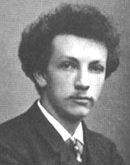Trivia
Concertos
J.S. Bach: Brandenburg Concerto No. 1 in F Major
The six pieces that make up the Brandenburg Concertos, are famous works by J.S. Bach from the Baroque period that demonstrated the full potential of the concerto, and each piece contains a variety of solo parts for various instruments. In concerto no. 1, there are solos by three horns, recorder, and violino piccolo. The three horns are performing with a sound like that of hunting horns, and they use difficult hand-stopping to execute smooth melodies, demonstrating many of the cutting-edge horn performance techniques of the Baroque period. Bach's Mass in B Minor and other works also showcase attractive horn parts.
W.A. Mozart: Horn Concerto No.3
Ask anyone about concertos from the classic period, and they immediately think of Mozart's works. Of Mozart's horn concertos, four are well known, but the most famous of these is the third. Not only are characteristically smooth Mozart melodies woven throughout the piece, there are fast paced sections worked in at strategic points, and it is quite a rich classical work in spite of its compactness. Mozart was able to conceive of such a wonderful concerto because there were so many virtuoso horn players in Vienna. Any Mozart piece features horn parts so beautiful that you would not think they were written for the natural horn. Concerto No. 1 is also famous.
C.M. Weber: Concertino for Horn
This concertino was written in 1806 for a horn player named Dautrevaux of the court orchestra at Karlsruhe, Germany. In the opera Der Freischütz, a beautiful horn part is performed with a romantic forest as a backdrop, in true Weber style, and this piece also shows off the capabilities of the natural horn through solos. The best part of this work is the cadenza. Weber was also putting demanding performance techniques. Producing two notes at the same time on a wind instrument is possible through the advanced technique of singing while playing.

Carl Maria Von Weber
R. Strauss: Horn Concerto No. 1 in E♭ Major
Richard Strauss's father, Franz, was a horn player in the court orchestra in Munich, Richard had a love of the horn, and he gave the horn an important position even in orchestral compositions. There are two horn concertos, but the first was written at nineteen years of age for his father. Compared with his later work, it has a more conservative air, yet, it also takes on a Wagnerian flavor in places-Wagner having been on the cutting edge at that time--and is definitely an enthusiastic concerto. Strauss the younger was invited to the Bayreuther Festival, and because of the high esteem with which people regarded his father, advanced techniques for the horn were expected of him.

Richard Strauss
Musical Instrument Guide : Horn Contents
Origins
Structure
How to Play
How the Instrument is Made
Choosing an Instrument
Trivia
- Famous horn works
- Concertos
- Mesmerizing fifths
- What does a very long horn sound like?
- The visual effect of "bells up"
- Mozart loved a good prank
- Is that the nature of the horn?
- An instrument by day, and a drinking mug by night
- Horn players can play the Wagner tuba, despite the name
- Why are horns included in woodwind quintets?
- What do you call someone who plays a horn?
- The reason that alto horns are used in brass bands
- What is a Vienna horn?
- Garlands do not deaden sound
- What is the Knopf model?
- New instruments have just been washed
